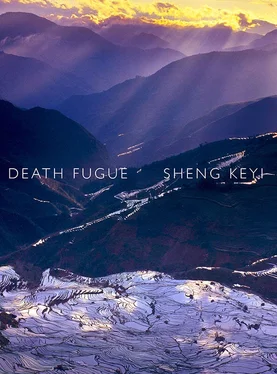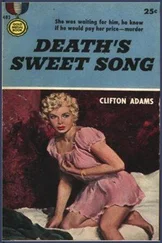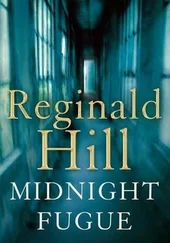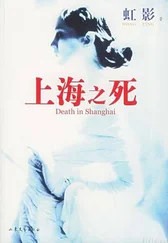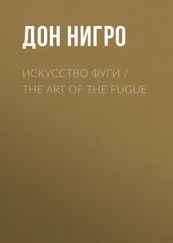Hot-blooded Mogen once again found meaning in life. He immediately started preparing and not long after, got hold of a place for the underground press, pulling trusted compatriots together from all over the island. However, Jia Wan’s promised funds never materialised, no matter how long Mogen waited. One day, Xiao Guang, the reader of the resignation letter, suddenly appeared before Mogen, and asked him about his relationship with the overseas organisations. He had stolen a secret document and said it might be valuable. Skeptical, Mogen asked him why he should risk imprisonment. Xiao Guang said that, for the sake of their companions who had shed their blood, he had always hoped to be able to do something to help. He could not just stand idly by. Mogen treated the matter casually at the time, but he did tell Jia Wan about it. Jia Wan was overjoyed and told Mogen to get his hands on the document. Mogen thought Xiao Guang could not be trusted, and did not want to be fooled by him. Several days later, Jia Wan drove to Mogen’s residence, and the two of them discussed Xiao Guang in detail, finally deciding that, even if he wasn’t very reliable, he was at least harmless. Three days later Jia Wan again brought up the document. Mogen remained hesitant, but Jia Wan demanded that he get it within three days, because he had already mentioned it to an overseas organisation. Two days later, he came to Mogen’s residence again, enraged this time. He said five people from the overseas organisation had already come to see him, and he did not want to keep them waiting as they had many other matters to attend to. If they did not establish trust from the beginning, there would be no way to work together in the future. He tossed his cigarette butt out the window, and bunched up his face. He wanted Mogen to pick up the document immediately, then go to the hotel to find the people from the overseas organisation.
Mogen got the file from Xiao Guang and went to the hotel in the city and met Jia Wan, but there was no sign of the members of the organisation. Jia Wan told him it was not convenient for them to meet him at the moment, but that the file would be passed on to them.
Actually, the so-called ‘overseas organisation‘ was just one of Jia Wan’s fabrications. He was also the one who had paid Xiao Guang one hundred yuan to read the resignation letter, then paid him another hefty sum to be part of this ‘document’ scheme. As soon as Mogen left the hotel, he was arrested by plain-clothes police officers and immediately sentenced to five years in prison for leaking state secrets. After his release, he could not find work, nor would anyone publish his articles, so he was left destitute.
Jia Wan, who had rendered meritorious service on the other hand, was transformed. He started up his own business and married the daughter of a senior official. He wrote lyrics praising the political apparatus, and his talent for flattery grew and grew. Using the rotted-out ladder of poetry, he climbed his way to the top through the black chimney of conscience. Hearing that Mogen had fallen on hard times, he secretly contacted him through influential friends, hoping to patch things up by using his wealth to redeem himself for past wrongs.
‘No matter what, Jia Wan is more powerful than you. There’s nothing he won’t do, no crime he won’t commit. He knows what he wants.’ Suitang’s sleepy voice did not lose its harshness. ‘But you? You don’t write poetry anymore. What do you want? Where are your ideals?’
‘After Bai Qiu’s death, poetry became hypocrisy, showing off, meaningless.’ Mengliu’s face darkened. ‘Rows of sentences are just row upon row of corpses. It’s all ringing in the ears, and hallucination.’
Suitang’s eyes closed as she lay on the lounge. She seemed to have fallen asleep.
‘Yes. The Three Musketeers are either dead or castrated. Everyone thinks that romance with a doctor conforms more to reality.’ She lazily opened her eyes and said leisurely, ‘A hot-blooded fellow could soar higher than the wind, higher than any victory ever experienced, transcend the most beautiful utterances in the history of the world. We have left that time behind, and we have learned to crawl. Armed men couldn’t break down the security doors. Only a few men with long hair were left to dwell in Beiping. It is impossible to know whether they feared bloodshed. I still want to believe that, besides shouting and singing, our flesh was also hardened. I am waiting for war, to bring back my homeland. The wolves are growing old and perishing in the wilderness, they have nowhere else to go. I am not a thug. I just want to marry a poet.’
Seeing that Mengliu had no response, Suitang straightened up and said slowly, ‘Those two sentences about war and wolves… would you know who wrote them?’
Of course he knew that the poem was written by Hei Chun on the evening before the bloodshed. The poem had circulated underground. Everyone who read it was struck with sorrow. Those who died would not live again, and those who had disappeared were still missing. The Green Flower had been closed down, Shunyu’s father captured. Mengliu did not want the pressures of his past to bear down on his present life. In particular, he could not bear to let a girl as lovely as Suitang know the cruel weight of history. But his more secret reason was the fact that he had not played the part of a hero at the crucial moment. He didn’t have enough of that quality to fascinate a young girl. He said casually, ‘I’m a doctor. I only care about the life and death of my patients. I do not bother with who writes what sort of poetry.’
5
As Juli applied medication to Mengliu’s wounded leg, it was just like the first time they had met. She didn’t say anything as she squatted before him, her face a distant landscape covered with a light fog. Mengliu felt like a fish, protected in her aquarium, but also limited, barricaded in. He was willing to give her up — he refused to write poetry, and she did not deliberately do anything to make it difficult for him, but his heart was very troubled, and he was sometimes suddenly filled with remorse. But then he would insist that what he was doing was right. If neither his repressed poems nor his body could be liberated, everything was meaningless to him. He thought she should understand this logic. When he had gone to bed with women, the bodies of both parties were free and uninhibited. It had always been this way. In his own room, doing whatever he pleased with his own body, who was there to bother? He looked at the stud flashing in Juli’s nose. Every so often she would get a different part of her body pierced. Her ears had been pierced until they resembled sieves, and even her navel hadn’t been spared. He thought that sooner or later she would become a human quiver, carrying arrows in the various holes on her body. Yet her natural orifices didn’t allow anything to penetrate.
In the dull silence, after she had wrapped his wound in white gauze and told him about the effects of a squid bite, she said that if he tried writing poetry, the distraction would make the healing process go faster. The poetic impulse had a secret property that stimulated healing, causing the body to secrete regenerative cells. Most people, relying on natural healing, would only recover fifty percent of their health. The wound would continue to fester, the new flesh to decay, and the patient would eventually die of infection.
‘I’m going now to the opening ceremony of an exhibition at the art museum.’ Juli wore a knee-length black coat over her grey robe, her hair braided and fastened at the back with a red clip. She was transformed into an emerald-hairpin spiral-bun lady, an independent petal. When she spoke, he felt like he was surrounded by blooming peach trees and green willows. ‘If you are interested, you can come and have a look at what is going on in the minds of today’s young people, and see how things have changed.’
Читать дальше
